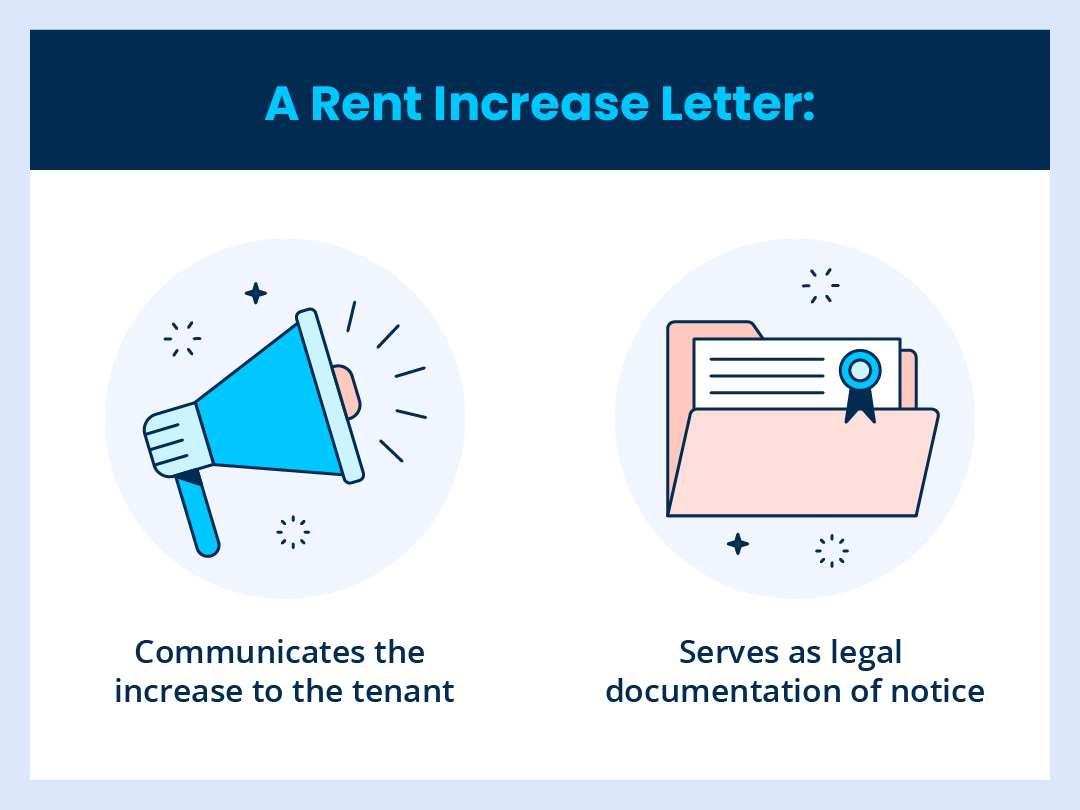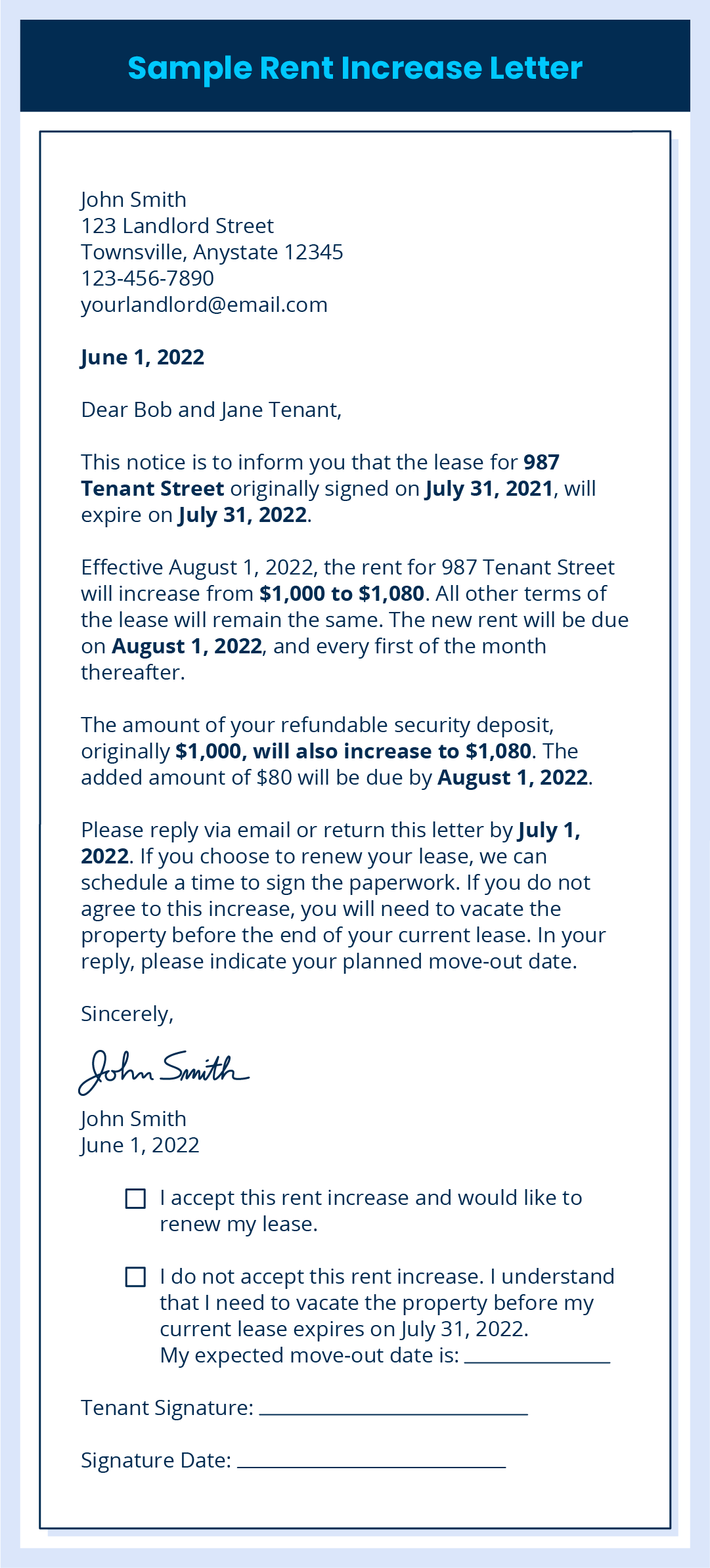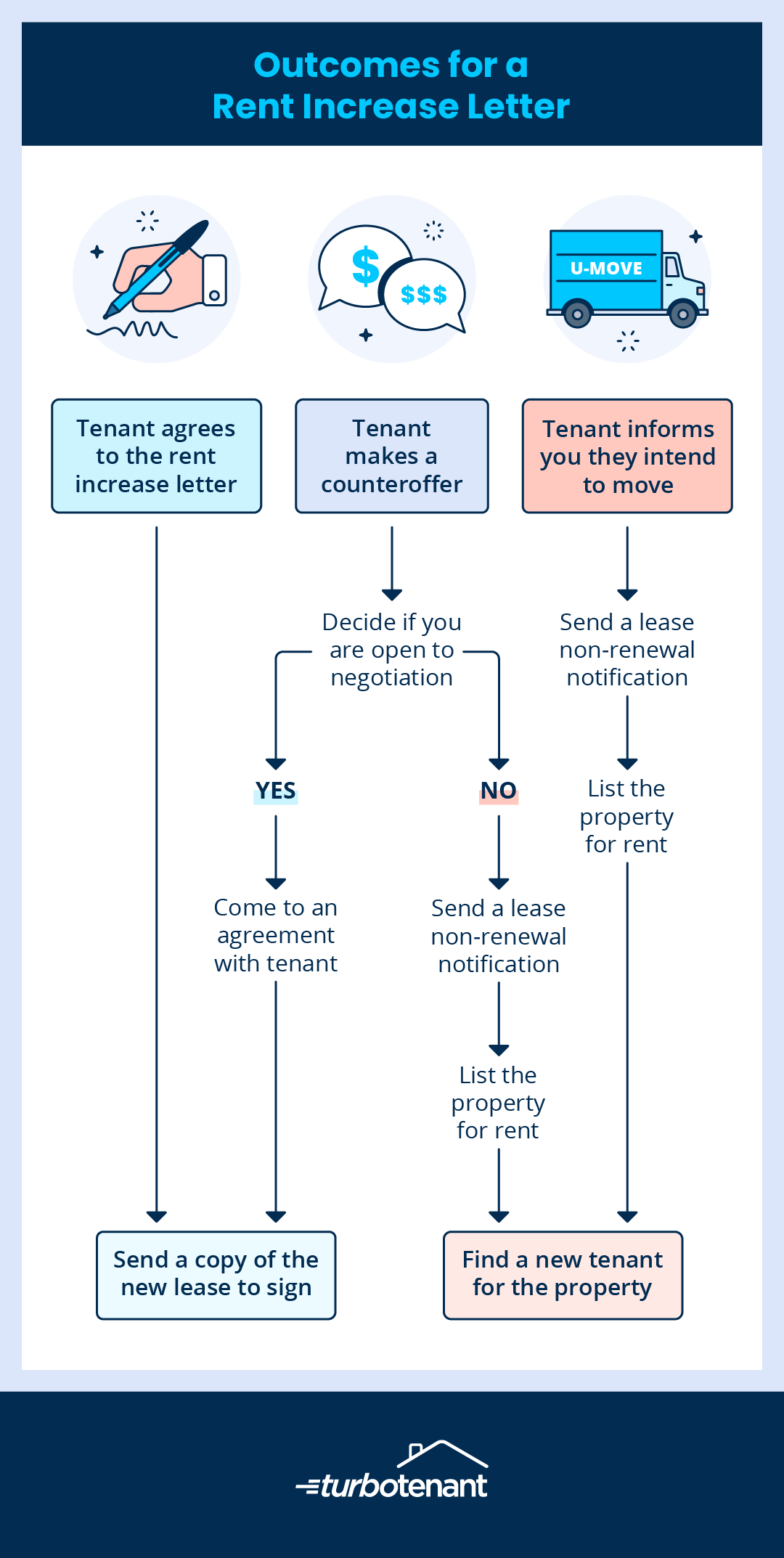

Raising rent is a fact of landlord (and tenant) life, but the process can be daunting. Make the increase too low and you risk losing needed income, but if it’s too high you can lose a responsible tenant. The hassle of getting a new tenant to sign a new lease agreement may cost more in the long run than the rent increase you can gain. Fortunately, sending a rent increase letter to tenants helps both parties navigate the process in a way that keeps everyone happy.
Our guide will walk you through how to write a rent increase letter to legally notify your tenants of an upcoming rent increase and includes a template to make sure you have all the necessary details.
In this article, you will find:
Raising rent is a delicate line to walk, but if you consider several factors when raising your tenant’s rent, there’s a good chance your tenant will stick around.
Landlords raise the rent for a variety of reasons.
Increased expenses related to the property are often the most significant reason you may be looking to raise the rent. Maybe your state or local taxes have grown, or your insurance premiums for the property have gone up. If you are renting out a home, perhaps the HOA fees for the neighborhood have gone up. Or it could just be the cost of living. Regardless, these are understandable reasons to raise your rent.
Another popular reason for raising rent is for needed investments in the property itself, like renovating outdated units or adding amenities to keep the property competitive with the local market.
You may also want to raise the rent to keep pace with the fair market rent in your area.
While it is also your legal right as a landlord to raise the rent, your tenants should be more amenable to the increase if you provide a legitimate, reasonable explanation for the raise.
You can never raise the rent as punishment for a tenant’s behavior, such as paying late, writing a negative review, or filing a claim against you. You also cannot raise the rent to force the tenant to move out because they are a poor tenant or you dislike their race, religion, or sexuality. Raising rent for any of these reasons violates Fair Housing laws and can lead to a lawsuit alleging landlord retaliation or discrimination.

A rent increase letter serves two purposes:
It’s in your best interest to create a standard rent increase letter on your property’s letterhead, saving you time each month when notifying tenants whose leases are expiring and ensuring you send a consistent message to each tenant.
If you find yourself considering a rent increase, there are a few factors you’ll want to weigh before letting your tenant know.
Once you’ve considered these factors and determined the amount of your increase, it’s time to let your tenant know with a friendly rent increase letter.
The content of a rent increase letter should be clear and to the point, yet friendly. Your goal is to clearly communicate when the rent increase will occur, how much it will increase, and what the tenant should do next.
A notice of rent increase letter should include the following:
A few other things to keep in mind when writing a friendly rent increase letter:

Download TurboTenant’s rent increase letter template and personalize it to suit your rental. Use the sample rent increase letter above as a guide when personalizing it.
The required notice period varies by state and lease type. Generally, you need to notify a month-to-month tenant 30 days before a rent increase. For fixed-term tenants, the general expectation is to give 30-60 days’ notice.
When deciding when to send a rent increase letter, consider the lease’s notice-to vacate policy. For example, if the lease requires 30 days’ notice that a tenant is moving out, you should send the rent increase letter 30 days before that. A tenant informed of a rent increase after their notice-to-vacate deadline will be even more upset if they have to pay a late notification fee.
Once you know when to send it, you have three options for delivering your rent increase letter:
Before sending the rent increase letter, make a copy and keep it for your records.

A tenant has three options after receiving a rent increase letter.
The best-case scenario is your tenant agrees to the rent increase and signs the letter and their renewed lease.
If your tenant wants to stay but cannot afford the rent increase, they may make a counteroffer. It’s up to you to decide if you are open to negotiating. It may be worth considering the type of tenant they are. A responsible tenant is better than screening unknown tenants.
Worst-case scenario, your tenant will reject the rent increase and give notice to vacate. At this point, you should send a non-renewal lease notice and list the property for rent to minimize the amount of time the property is vacant.
If you don’t hear back from the tenant within a reasonable timeframe, it’s okay to follow up with an email or another letter.
While raising rent can be stressful, it is necessary for the success of your rental business. Instead of thinking of it as a chance to lose tenants, think about the positives and use this as an opportunity to offer new features, like online rent payments or rent reporting.